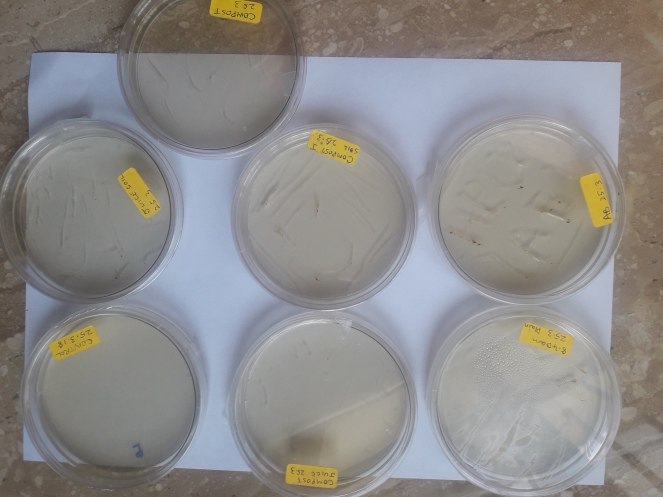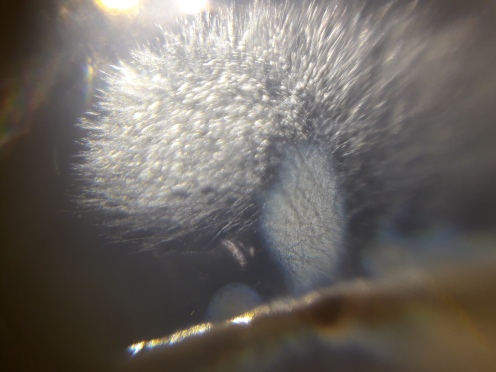 It has been two years since I started this journey of exploration and learning. I started an MA in Design in Education from Srishti Institute of Art, Design and Technology. I knew before I even started that I will be in for an exhilarating roller coaster ride; The potential energy- excitement and fear of the unknown – ready to start, the kinetic energy then acting upon you with new learnings and meetings and then comes the gravitational force pulling you to the ground with assessments and due dates, the acceleration of thoughts and ideas and then in the end when you stop you reach the state of inertia – but not in this case. Here I am still moving – reflecting and continuing to learn. The whole course focussed on our personal mastery. There were some wonderful facilitators who helped us on this journey. So here, I am looking at my own personal mastery.
It has been two years since I started this journey of exploration and learning. I started an MA in Design in Education from Srishti Institute of Art, Design and Technology. I knew before I even started that I will be in for an exhilarating roller coaster ride; The potential energy- excitement and fear of the unknown – ready to start, the kinetic energy then acting upon you with new learnings and meetings and then comes the gravitational force pulling you to the ground with assessments and due dates, the acceleration of thoughts and ideas and then in the end when you stop you reach the state of inertia – but not in this case. Here I am still moving – reflecting and continuing to learn. The whole course focussed on our personal mastery. There were some wonderful facilitators who helped us on this journey. So here, I am looking at my own personal mastery.
One of the many things I started doing in the last two years was to start a blog. I had envisioned writing a cooking blog but with so many blogs already, I did not see why I should do one more. In the first semester, we were asked to start writing a blog. It was not easy writing but write I did, these two years. I continued writing past my first semester. Though the blog became primarily a cooking blog, I plan to continue looking at science and writing about it. The other task was to do 2-3 online courses each semester the first two years. This was a great way to explore different interests including programming, the science of everyday thinking and science of gastronomy.
I also started doing things which were out of my comfort zone. Maybe writing a blog, starting to sketch was pushing me to do other things I would usually not. Sketching was meditative and helped me in ‘Seeing’. After all, seeing is the beginning of good science – observation. I started to trek with a few of my friends. I always wonder if this was the MA talking or a mid-life crisis. Whatever it is, going out of my comfort zone to do things is opening up more avenues.
I love reading and I read both fiction and nonfiction. But this course pushed me to read books I would have never read. The first semester, most of the reading went over my head. These were mainly educational philosophy books. It took time to understand Piaget and Papert and even remember who said what. I had to google and read summaries. But as time went and more reading happened, it got easier. I remember one time, I was returning from a school trip and on the long bus ride, I was reading Protagoras. My colleague (and friend) sitting next to me offered to read it aloud to me as I did not have my glasses. It was interesting trying to understand who a ‘Sophist’ was over the din of school children having a good time with their friends. The two of us added to the din trying to pronounce the Greek names. We tried to read and understand the dialog between Protagoras and Socrates and figure out if virtues can be taught, with children shouting out, “Miss, how much more time” every five minutes. (Sophist – “He is the one who makes men talk eloquently of what he knows”). In the last semester, I started reading John Dewey. Initially, it was confusing but as I read more I understood and related to what I read. Today, I can safely say that I can read more difficult texts and able to grasp the underlying meaning. Today, I read scholarly articles and when I google something, I first get scholarly articles for it!
In the ‘Fifth Discipline’ by Peter Senge, he says people with a high level of personal mastery live in a continual learning mode and it is a process. As I continued this journey of personal mastery, I explored ways of learning and teaching science. I always felt that just teaching information is not enough but in this journey, I could articulate my thoughts on teaching science; that engaging imaginatively, creating a sense of ‘Wonder’ and using storytelling, experiential learning, ‘making’ and humanizing science were some of the ways. Science content is full of wonder, but science education does not implement the sense of wonder in everyday classrooms as Y Hadzigeorgiou said in his book, Imaginative Science Education.
I became a student; writing down all my thoughts and questions in an accordion book (inspired by Arzu Mistry – https://accordionbookproject.com), exploring my inquiry using experimentation, making a DIY microscope, being captivated by the images from the microscope, writing poetry and stories. I did not know the answers to the questions I asked, I did not google the answers, instead, I designed experiments. That led to more inquiry and more experimentation. Reflecting on the process and writing it down helped get my thoughts clearer and helped unfold my thinking.

Even though the course is over, I continue to ask questions and continue to explore. Writing the dissertation was painful and included many sleepless nights and I thought I would not write for a long time. But in less than a week, I write! I am back at the amusement park may be on another ride. As Peter Senge says, it is a lifelong discipline and the journey is the reward!











